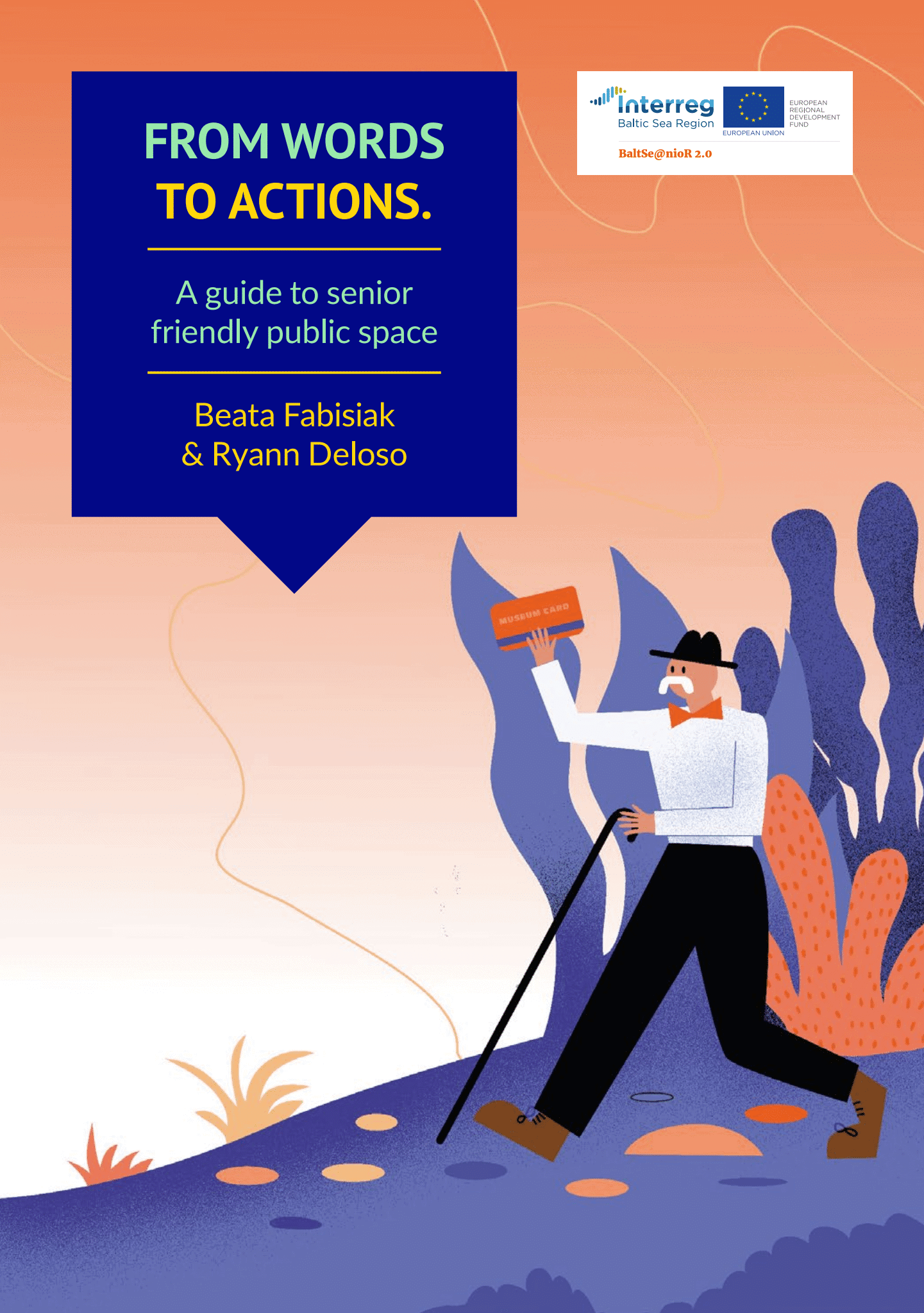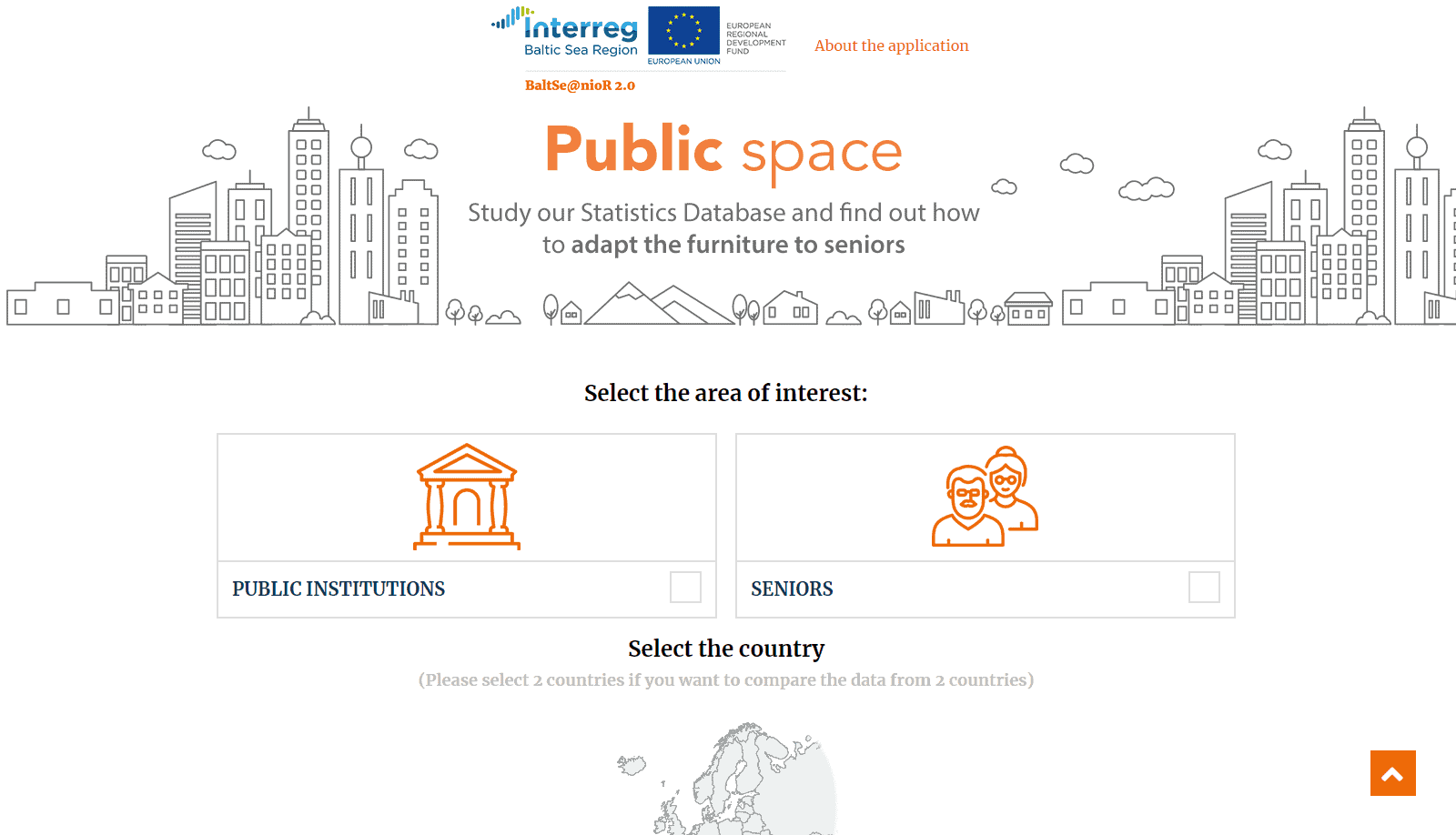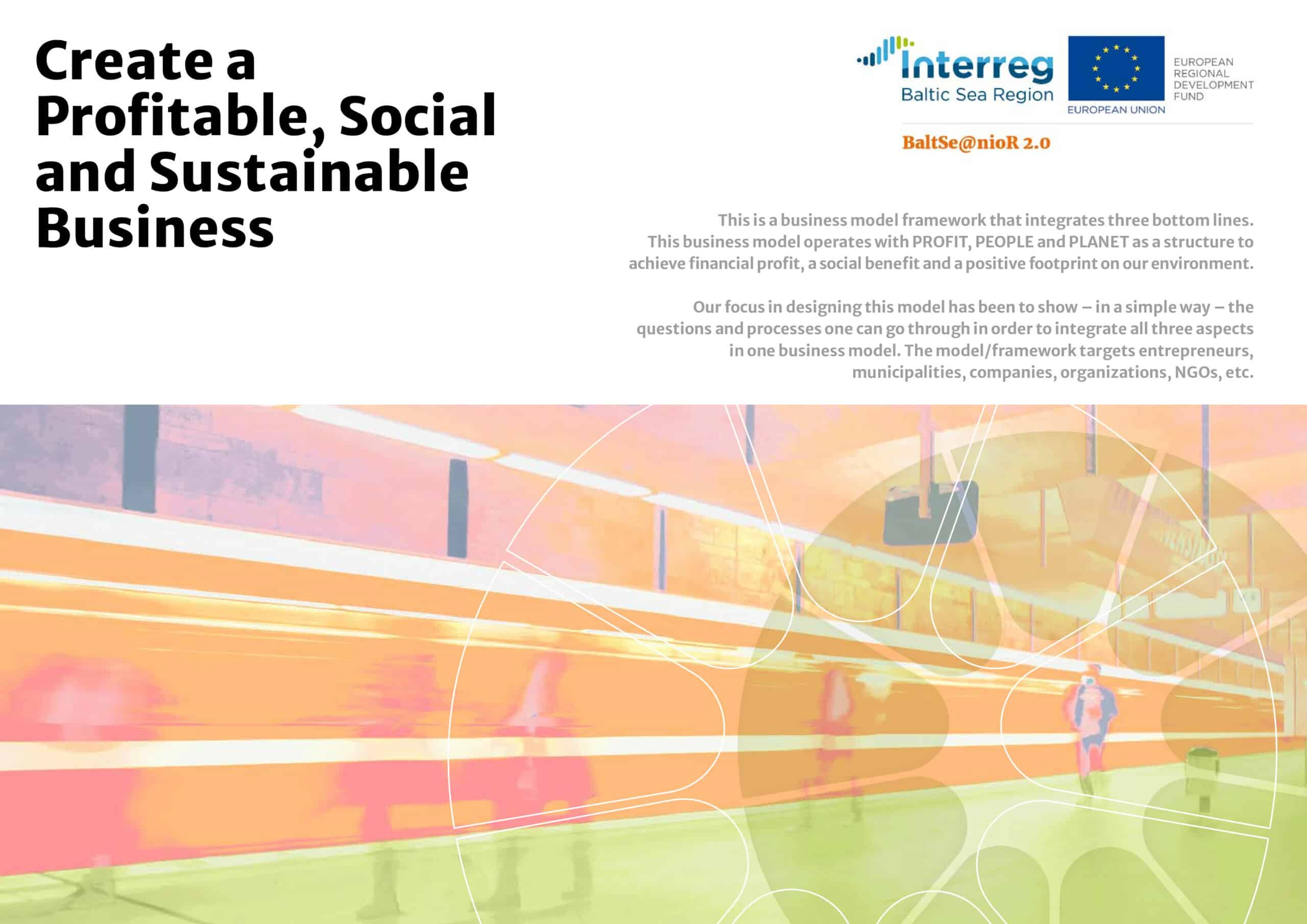BaltSe@nioR 2.0
Age-friendlier public spaces
Five nations from the Baltic Sea region are among ten oldest in the world. All in all, 18% of the EU population is now 60+, and the ratio of seniors in societies is continuously growing. The progressing age of societies in the Baltic Sea region poses a societal and economic challenge in adjusting market offers to the needs of the elderly. As the number of seniors rises, public spaces need transformation to reduce ageism and be friendly to all.
The BaltSe@nioR 2.0 project brought together municipalities, universities, businesses, and NGOs to create new business models as well as demo spaces in public locations furnished with smart furniture. This way the project triggered public institutions and manufacturing companies in the region to start a transformation of museums, theatres, city halls, restaurants, and other public spaces into friendlier places for seniors.
Shared expertise
The needs of the seniors and the ways to meet them were thoroughly explored by public institutions, manufacturing companies, designers and experts together. This helped to properly test and provide senior-friendly smart furniture in various public spaces, as well as develop prototypes to promote further innovative manufacturing considering the needs of the seniors.
Budgets
in numbers
-
2.13MillionTotal
-
1.60MillionErdf
-
0.10MillionEni + Russia
-
0.00MillionNorway
Achievements
Cross-national needs’ assessment
The partners conducted a cross-national survey on the needs of seniors and public institutions in all Baltic Sea region countries. 562 public institutions and 2088 seniors from the whole region took part.
Senior-friendly smart furniture prototypes
To demonstrate the possibilities of implementing ICT solutions into furniture and focus the attention of manufacturers on a senior-friendly design, the project partners developed prototypes of smart furniture addressing seniors’ needs, e.g. three designs of smart tablecloths, a table facilitating VR/AR usage, a medical smart bed, a smart cushion, automated robotic support for seniors to stand up. In addition, 20 concepts for new senior-friendly products were created, including a swinging bench for outdoor use, a chest for multigenerational planting, and a rotating board game cube.
Senior-friendly model public spaces
The project partners created four permanent and one pop-up senior-friendly model public spaces in five BSR countries (Poland, Estonia, Lithuania, Sweden, and Finland) using the prototype products and concepts developed during the project. The project rearranged various spaces: outdoor spaces and indoor spaces being a relaxation zone, a co-working zone, an educational zone, assisted ambient living facility, medical training and simulation rooms, physiotherapy, and social rooms to demonstrate how public spaces can be made more senior-friendly. These model spaces showcase a change that can be implemented in the Baltic Sea region and act as good practice examples of how to create a public space that everyone can easily enter and use, including seniors or people with disabilities.
Outputs
From words to actions. A guide to senior-friendly public space

Knowledge database on senior-friendly public spaces

Accessibility VR Game

Social Business Model

Project Stories
-
13.08.2020
Interreg empowers young generation to design a better future
Beata Fabisiak, project manager of the Interreg BaltSe@nioR and BaltSe@nioR 2.0 projects, explains how empowering young people brings multiple benefits: from driving economy to responding to major societal challenges. BaltSe@nioR and BaltSe@nioR 2.0 are great examples how young Europeans from different countries around the Baltic Sea can learn from each other to design a better future for Europe and its citizens.Read full story -
04.12.2019
What Russian partners do in Interreg projects: 5 examples from the Baltic Sea region
As many as 43 Interreg Baltic Sea Region projects are working together with Russian partners, showcasing that the same cause unites people beyond borders. From innovating businesses to saving energy and improving mobility – Russian partners are active in all thematic fields of the Programme. But what do they actually do?Read full story
Partners
Poznan University of Life Sciences
- TownPoznań
- RegionMiasto Poznań
- CountryPoland
- RepresentativeBeata Fabisiak
- Phone
- E-Mail
- Web
Development Centre UMT
- TownHerning
- RegionVestjylland
- CountryDenmark
- RepresentativeJoan Knudsen
- Phone
- E-Mail
- Web
Satakunta University of Applied Sciences
- TownPori
- RegionSatakunta
- CountryFinland
- RepresentativeAnja Poberznik
- Phone
- E-Mail
- Web
Ukmergė District Municipality Administration
- TownUkmergė
- RegionVilniaus apskritis
- CountryLithuania
- RepresentativeLinas Rugienius
- Phone
- E-Mail
- Web
Võru County Vocational Training Center
- TownVäimela
- RegionLõuna-Eesti
- CountryEstonia
- RepresentativeAstrid Org
- Phone
- E-Mail
- Web
Technical University of Munich
- TownMuenchen
- RegionMünchen, Kreisfreie Stadt
- CountryGermany
- RepresentativeThomas Bock
- Phone
- E-Mail
- Web
ITMO University
- TownSt. Petersburg
- RegionCity of St. Petersburg
- Country
- RepresentativeIgor Kuprienko
- Phone
- E-Mail
- Web
Art Academy of Latvia
- TownRiga
- RegionRīga
- CountryLatvia
- RepresentativeVineta Kreigere
- Phone
- E-Mail
- Web
Hanseatic Parliament
- TownHamburg
- RegionHamburg
- CountryGermany
- RepresentativeMax Hogeforster
- Phone
- E-Mail
- Web
Saue Municipality
- TownSaue
- RegionPõhja-Eesti
- CountryEstonia
- RepresentativeKadri Tillemann
- Phone
- E-Mail
- Web
University of Skövde
- TownSKÖVDE
- RegionVästra Götalands län
- CountrySweden
- RepresentativeCatharina Gillsjö
- Phone
- E-Mail
- Web
-
Project managerBeata FabisiakPoznan University of Life Sciences
-
Legal representativeKrzysztof SzoszkiewiczPoznan University of Life Sciences
-
Financial managerMałgorzata NeumannPoznan University of Life Sciences
-
Communication managerBeata FabisiakPoznan University of Life Sciences



